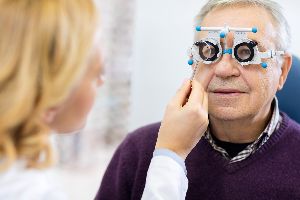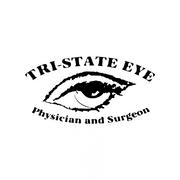
Age-related macular degeneration impacts roughly 15 million adults in the U.S. It's also the leading cause of vision loss for those over 60. Understanding this disease will protect your eyesight by ensuring you notice the early signs and act quickly. Review this brief guide to learn more about macular degeneration and its symptoms.
What Is Macular Degeneration?
The retina is a narrow membrane at the back of the eye that's responsible for processing light. It allows the brain to create visualizations of what's being seen. Macular degeneration harms the center of the retina, known as the macula, causing your central vision to be lost. However, you can still see in the periphery.
There are two types of macular degeneration: dry and wet. Most diagnoses are of the dry variation. It's a result of developing drusen — small, yellow protein clumps — on the macula, which is common with age. Once they grow big enough, they start reducing visibility. This process is often accompanied by a thinning of the macula, which reduces the number of light-registering cells.
Wet degeneration is far less common. However, it's a much more serious diagnosis. Instead of the macula breaking down, blood vessels form and grow around it. They can leak fluids, including blood, and scar the macula, resulting in vision loss.
Causes

Anyone can experience macular degeneration, but certain factors can increase the likelihood of the condition. Individuals with a family history of the disease are at more risk.
Age is another consideration, as the disease mostly impacts people over 50 years old. Additionally, life habits and other ailments, like obesity, smoking, high blood pressure, high cholesterol, and heart diseases, increase the risk.
Treatment
The early stages of the disease often go unnoticed or are attributed to other issues until vision loss occurs, including blurry and patchy eyesight. As a result, it's important to schedule regular exams so that an eye doctor can catch the issue early. For dry macular degeneration, there's not an official treatment. Instead, the goal is to minimize damage with lifestyle changes, diet, and supplements.
The wet variation is also incurable, but it can be slowed down with the right treatment. Medication is a common option that prevents new blood vessels from forming.
Help protect your eyes from vision loss with regular exams from Tri-State Eye in New York. These local eye doctors utilize state-of-the-art technology to provide thorough evaluations for clients across the Tri-State Area, including Middletown and Milford. The skilled team also offers professional eye surgery on-site for fast and effective treatment. Learn more about their services online, or book an appointment today by calling (845) 703-2020.
About the Business
Have a question? Ask the experts!
Send your question

